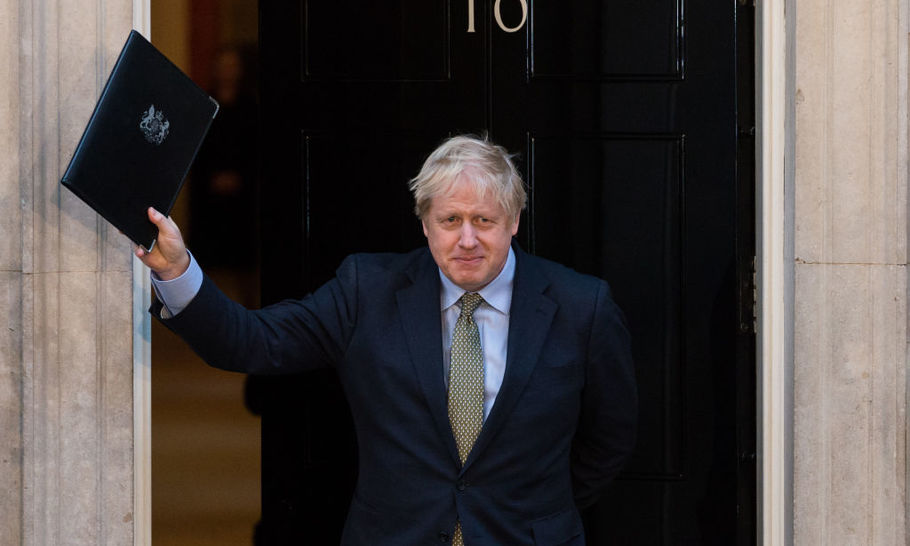A Conservative recovery long in the making could yet prove short lived

( WIktor Szymanowicz/NurPhoto via Getty Images)
More of us should have seen the election result coming, and not just because the pollsters were correct. Given their collective cock-ups in previous contests, we were right to be wary.
The bigger reason is that the Boris triumph was six elections in the making.
From the nadir of 1997 came a series of steady improvements in the Conservative vote share, rising from an anaemic 31.7 per cent to a rosy-cheeked 43.6 per cent last week.
While this demonstrates the Conservative Party’s remarkable capacity for survival and reinvention, it didn’t always feel like it along the way.
William Hague’s “24 hours to save the pound” slogan in 2001 was even less credible than the NHS equivalent wheeled out by Labour every election. Yet it lives on in the shift to Euroscepticism that now dominates British politics and will culminate in the UK’s EU withdrawal in January.
Much of Michael Howard’s 2005 “Are you thinking what we’re thinking?” campaign was painted as extremist. But he made gains and today his policies are mainstream. “Controlled immigration” and “more police”, anyone?
In 2010 David Cameron returned the Tories to power, gaining 96 seats (twice the number Boris managed last week, something which will escape neither man’s notice). Cameron had to enter a coalition with the Liberal Democrats, but by 2015 he was able to get rid of them entirely.
And in Theresa May’s disastrous 2017 election, her vote share soared to levels last achieved by the Tories in Margaret Thatcher’s 1983 landslide, even if her constituency count fell well short.
This continuous progress, plus the circumstances created by the EU referendum and a 2017-19 parliament which set new lows for narcissistic ghastliness, gave us the conditions for last week’s result.
But politics is about where you are going, not where you came from. Or to put it another way, past performance is not indicative of future results. Boris stands on a platform created chiefly by others, but only he can plunge from it. He has been given the opportunity to make British politics all his own. With a chunky majority and very loyal parliamentary footsoldiers, he must take responsibility for all the resulting highs and lows.
So far, people like the Boris sizzle. We should know by 2024 whether they like the steak too. This will not be about delivering the specifics of his manifesto. The big numbers — of new nurses or police or whatever it may be — tend not to be taken too seriously by a sceptical public in the first place. Pledges, however worthy, “to cut the time wasted by scientists filling in forms” or to make “our most-loved landscapes happier” are unlikely to feature on the doorstep next time around.
Instead Boris will be judged on whether people feel satisfied he has delivered change, most obviously in our relationship with the EU but also in towns and cities across the UK, and especially in those new Tory constituencies in the North and Midlands. This is where reality might hit.
An overhaul of transport infrastructure in these areas is painfully overdue, but few projects are shovel — let alone oven — ready. Do not expect Boris the Blue Engine to be steaming along gleaming new northern lines by 2024.
Fundamental changes in our retail habits mean town centres and high streets will continue to struggle, and it is hard to see what he can do about that in a hurry.
Every government promises to shake up our housing system, but there seems zero chance of supply outstripping demand any time soon.
Nascent plans to reform Whitehall, redraw aged constituency boundaries and even replace the House of Lords are issues for the wonks, not for the workers.
Boris, ever the optimist, will make the most of successes which do come his way. As Mayor of London he did well enough at this to secure a second term in that now most Labour of cities.
But in London twice and in the country as a whole last week, Boris was blessed with weak opponents. Labour recovering quickly and uniting along moderate lines seems a long shot, but is hardly inconceivable. A suitably patriotic new leader who brings the remainers and the metropolitan left together, who benefits from any Tory tantrums and who lards it all with a bit of luck can build some new red walls.
The as-yet unknown realities of life outside the EU, the difficulties of delivering regional growth and the horrors of dealing with a resurgent SNP could prove to be sea anchors which drag back that 22-year Tory recovery.
By 2024 Boris’s sizzle may have subsided and his steak still to arrive. Frustrated voters could be toying with a vegan alternative. However unlikely this seems right now, and however much many of us wish the Prime Minister well, nobody can defy political gravity forever.




